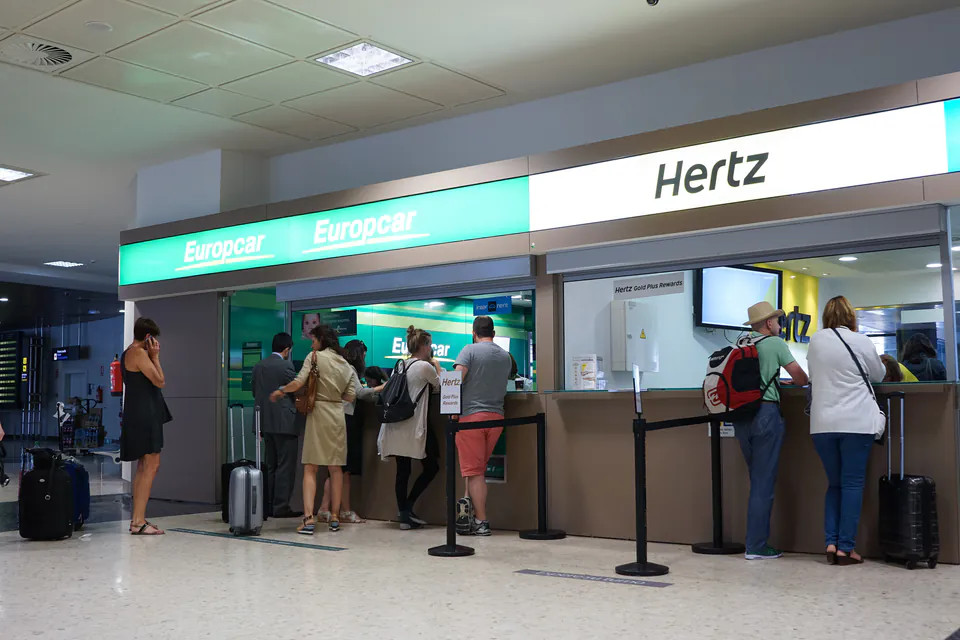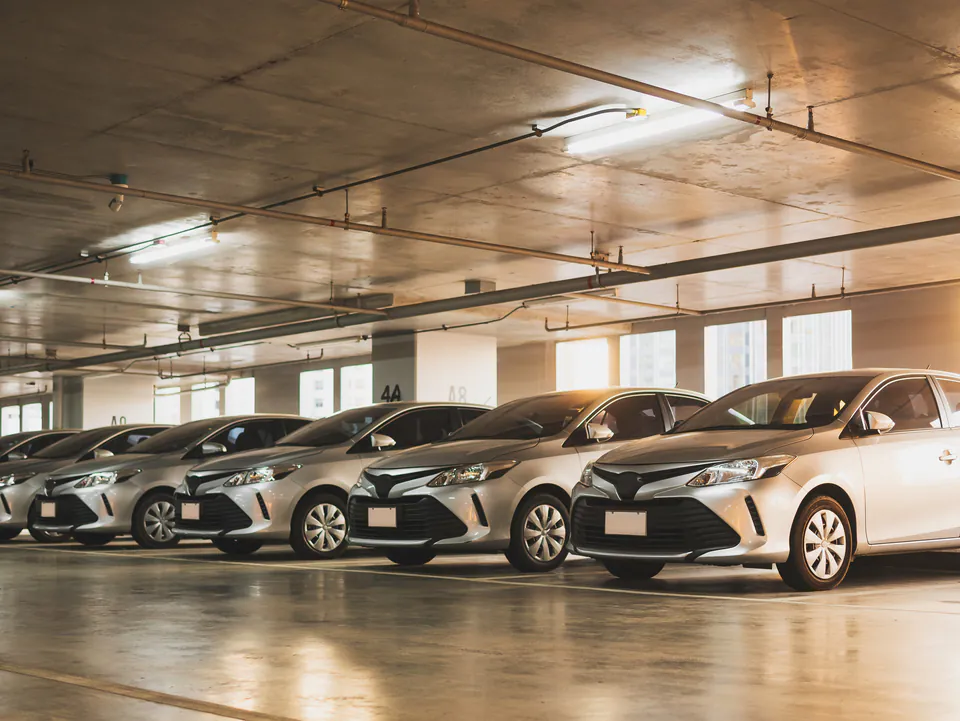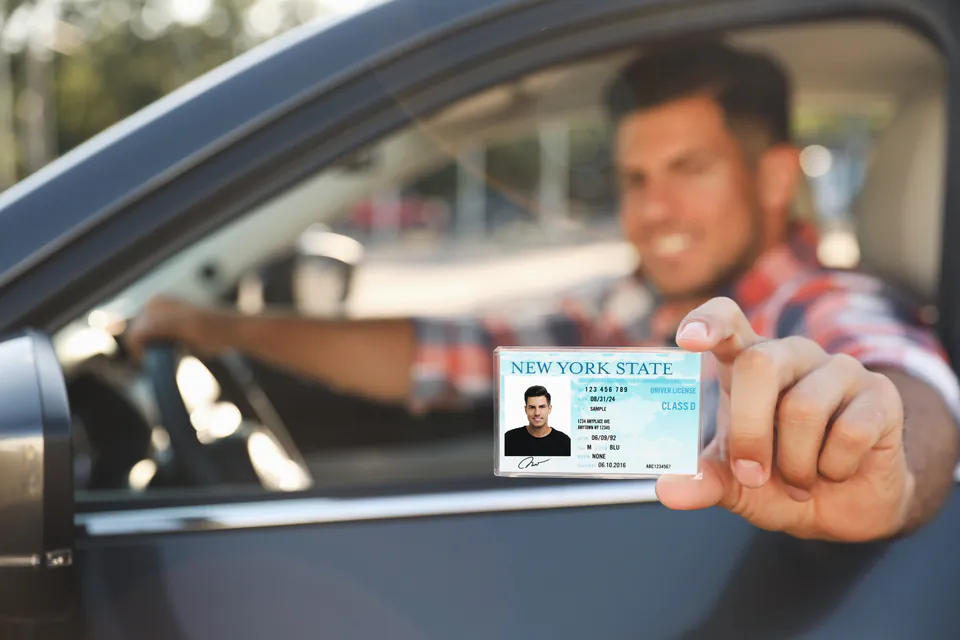Car Rental in Budapest: Options and Requirements
Getting a car in Budapest is pretty smart if you want to see more than just what the buses and trams can take you to. Sure, Budapest has great public transport that gets you to all the main spots. But having your own car? That's when things get interesting. You can check out those quiet neighborhoods tourists never find, drive out to the Hungarian countryside, or visit those cute little towns along the Danube whenever you feel like it. We've found that having a car opens up so many possibilities, from random castle visits to just avoiding the hassle of carrying shopping bags on public transport. Budapest makes renting a car pretty easy too.

Getting Your Car at the Airport
Budapest Ferenc Liszt International Airport is where most people land, and the good news is there are tons of car rental places right there. As soon as you get off your plane, you'll see all the big names like Avis, Enterprise, Budget, SIXT, Hertz, and Europcar. They're spread around Terminals 2A and 2B, plus that central Skycourt area.
Having all these companies in one place is great for you. Alamo, National, Mega Drive, Buchbinder, and Thrifty are all fighting for customers, so you can usually find good deals. The car selection is huge too, from tiny city cars to big SUVs. Some rental places that aren't directly at the airport will even send a free shuttle to pick you up from the terminal. We always check these options because sometimes they have better prices or the exact car type we want.

The best thing about airport rentals is how quick it is. You grab your bags, walk to the rental desk, and boom, you're driving to your hotel or wherever you want to go first. The desks stay open pretty late to match flight times, but we always book ahead to get better prices and make sure they actually have a car for us.
Downtown Rental Spots
Not everyone needs a car right away, and that's totally fine. Budapest's downtown rental offices are perfect if you want to walk around the city center first or use the metro for a few days before heading out on road trips. All the big international companies have spots around the city center, usually near nice hotels and transport hubs.
You can find Europcar near the fancy Kempinski Hotel Corvinus. Budget is on Kassak Lajos Street and Avis has several downtown locations including the Bank Center. These city spots are super handy when you suddenly decide you want to visit Szentendre for the day or check out those wine regions around Eger.

There are also local Hungarian companies like Avalon Rent a Car and Group 4 Rent. Sometimes these guys give you more personal service or better deals if you're renting for a while. The cool thing about city center pickup is you get to enjoy Budapest without a car first. Walk around, hit the thermal baths, then grab a car when you're ready to explore outside the city.
Picking the Right Car
Budapest has just about every type of car you could want. What you choose depends on where you're going and how many people you have. If you're traveling solo or as a couple and staying mostly in the city, those small economy cars like the Toyota Aygo or Hyundai i10 are perfect. They use barely any gas and you can squeeze them into tiny parking spots on Budapest's narrow streets.
Families or bigger groups usually go for something like the Toyota Corolla or Ford Focus. You get comfortable seats and enough room for luggage without driving something huge that's hard to park. We really like the Peugeot 2008 for most trips. It's small enough for city driving but sturdy enough when you want to explore the countryside.

If you're planning to drive on rougher roads or just like sitting up high, SUVs like the Audi Q5 or Suzuki Jimny give you better visibility and confidence on different road types. Big groups should look at minivans like the Renault Grand Scénic. If you have tons of luggage or equipment, commercial vans like the Opel Vivaro work great.
Here's something that catches a lot of North Americans off guard. Manual transmissions are way more common here and cost less. Automatic cars are available, but if you can't drive stick, you need to specifically ask for automatic when booking. We learned this the hard way on our first trip when we assumed automatic would be standard!
Popular Rental Vehicle Categories
| Vehicle Category | Popular Models | Best For | Passengers |
|---|---|---|---|
| Economy | Toyota Aygo, Hyundai i10 | City driving, budget travel | 2-4 |
| Compact | Ford Focus, Suzuki Swift | Balanced city and highway use | 4-5 |
| Intermediate | Toyota Corolla, Peugeot 2008 | Comfort and efficiency | 4-5 |
| SUV | Audi Q5, Suzuki Jimny | Countryside exploration | 4-7 |
| Minivan | Renault Grand Scénic | Large families, groups | 6-8 |
What You Need to Rent
You need to know the rules before you show up, or you might be disappointed at the rental counter. Most places want you to be at least 21, but some fancy companies like Hertz might want you to be 25, especially for luxury cars or bigger vehicles.
If you're between 21 and 25, plan on paying extra fees. Most companies charge "young driver" fees. These fees are different for each company and car type. Avis, Enterprise, and Budget all do this, usually for Mini, Economy, Compact, and Intermediate cars.

Your regular driver's license usually works fine if you're from the EU. But if you're from outside the EU, we really recommend getting an International Driving Permit (IDP). Some companies are picky about certain countries. Hertz has special rules for Chinese and Vietnamese licenses.
Most rental companies want you to have had your license for at least one year. Hertz and Europcar prefer two years. This just makes sure you actually know how to drive and keeps their insurance costs down.
Paying for Your Rental
Budapest car rentals really want credit cards, especially those embossed international ones from Visa and Mastercard. The person driving has to have a credit card in their own name, and it needs to be valid for at least 60 days after you return the car.
Some companies take debit cards for certain cars, but prepaid cards are a no-go everywhere. Enterprise wants credit cards specifically for 4x4 and premium cars, even if they usually take debit cards. For expensive cars, some places want two valid cards, with at least one being a gold card.

The credit card does two things. It pays for the rental and covers any damage or tickets you might get. Rental companies put a hold on your card for the rental cost plus a security deposit. This can be anywhere from a few hundred to over a thousand euros depending on what car you get.
Insurance and Protection
Hungarian law says all rental cars need basic third-party liability insurance. This is included in your rental price along with the 27% VAT. This covers damage to other people and their stuff, but you could still be on the hook for damage to your rental car.
Collision Damage Waiver (CDW) is the most important extra coverage for most people. Without CDW, you could end up paying to replace the entire car if something happens. Even with CDW, you'll usually have an excess (that's like a deductible) that can be several hundred to over a thousand euros, depending on the car.

Super CDW (SCDW) can reduce or get rid of this excess completely. It's great peace of mind if you don't want to worry about big unexpected bills. Theft Protection (TP) does the same thing if someone steals your car. Personal Accident Insurance (PAI) covers medical bills for you and your passengers.
You can also get Personal Effects Coverage for your stuff, Extended Roadside Assistance if you break down, and extra Liability Insurance for more third-party protection. Before buying all these extras, check if your regular car insurance, credit card, or travel insurance already covers you. We discovered that many premium credit cards include rental car protection, which saved us a bunch of money.
Insurance Coverage Options
| Coverage Type | What It Covers | Recommended For |
|---|---|---|
| Third-Party Liability | Damage to others (mandatory) | All renters (included) |
| Collision Damage Waiver | Damage to rental vehicle | Most renters |
| Super CDW | Reduces/eliminates excess | Risk-averse travelers |
| Theft Protection | Vehicle theft coverage | Urban parking situations |
| Personal Accident Insurance | Medical expenses for occupants | Travelers without health coverage |
Getting the Most from Your Rental
Success starts with good preparation and realistic expectations. Book early, especially during busy tourist times or big events, because popular cars sell out fast. Compare prices at different companies, but remember the cheapest isn't always the best deal when you add up insurance, fuel policies, and pickup convenience.
When you pick up your car, check everything carefully and take photos of any damage that's already there. Check the fluids, look at the tires, and make sure you understand the fuel policy. Some companies want you to bring it back with a full tank, others let you prepay for fuel.

Learn the Hungarian traffic rules and parking regulations before you start driving. Budapest's city center has lots of pedestrian-only areas and tricky parking rules. Highway driving requires toll payments for some routes. GPS or smartphone apps are super helpful for avoiding traffic problems and actually finding where you want to go.